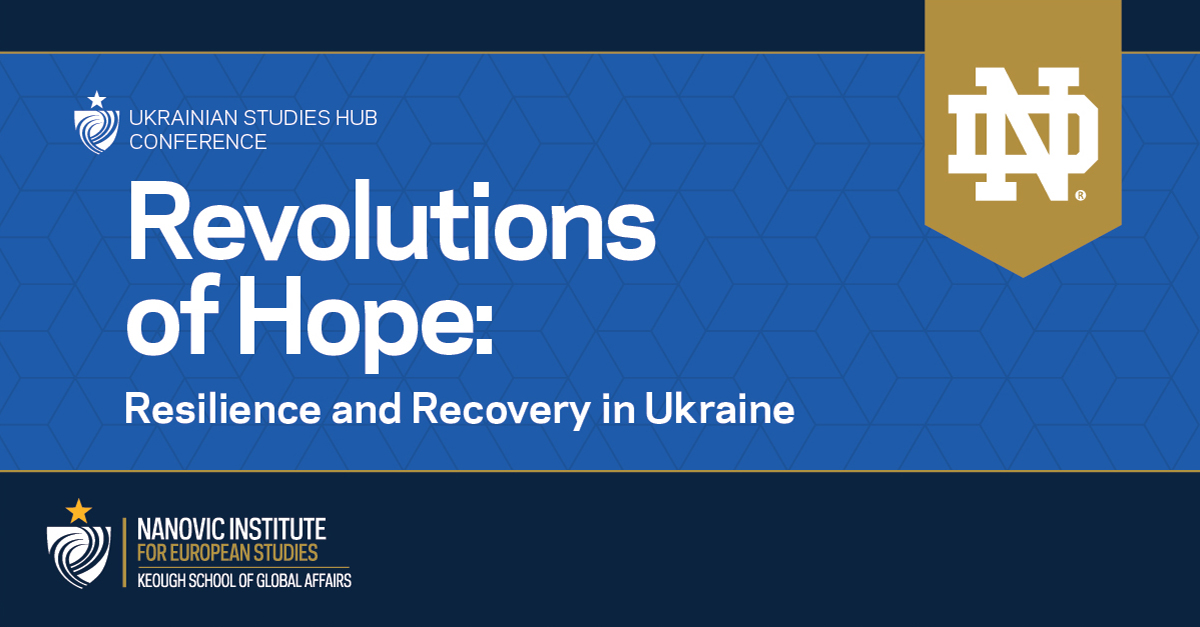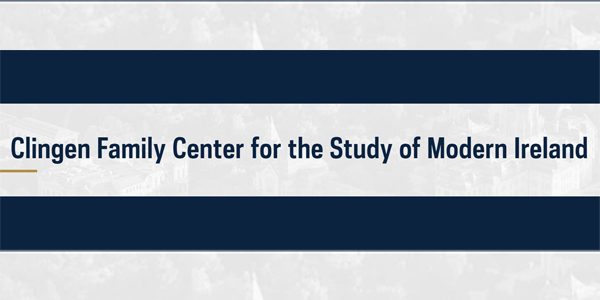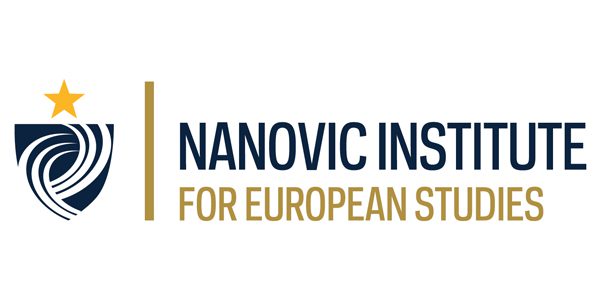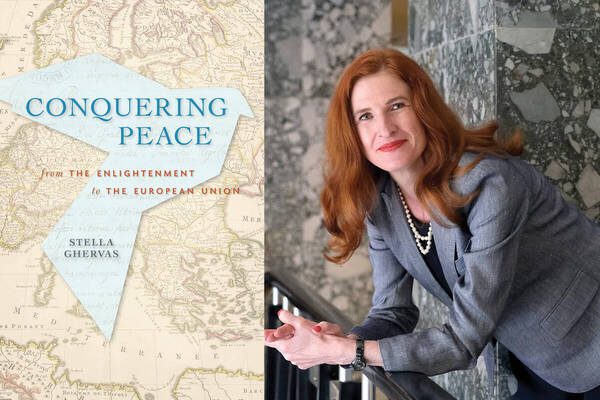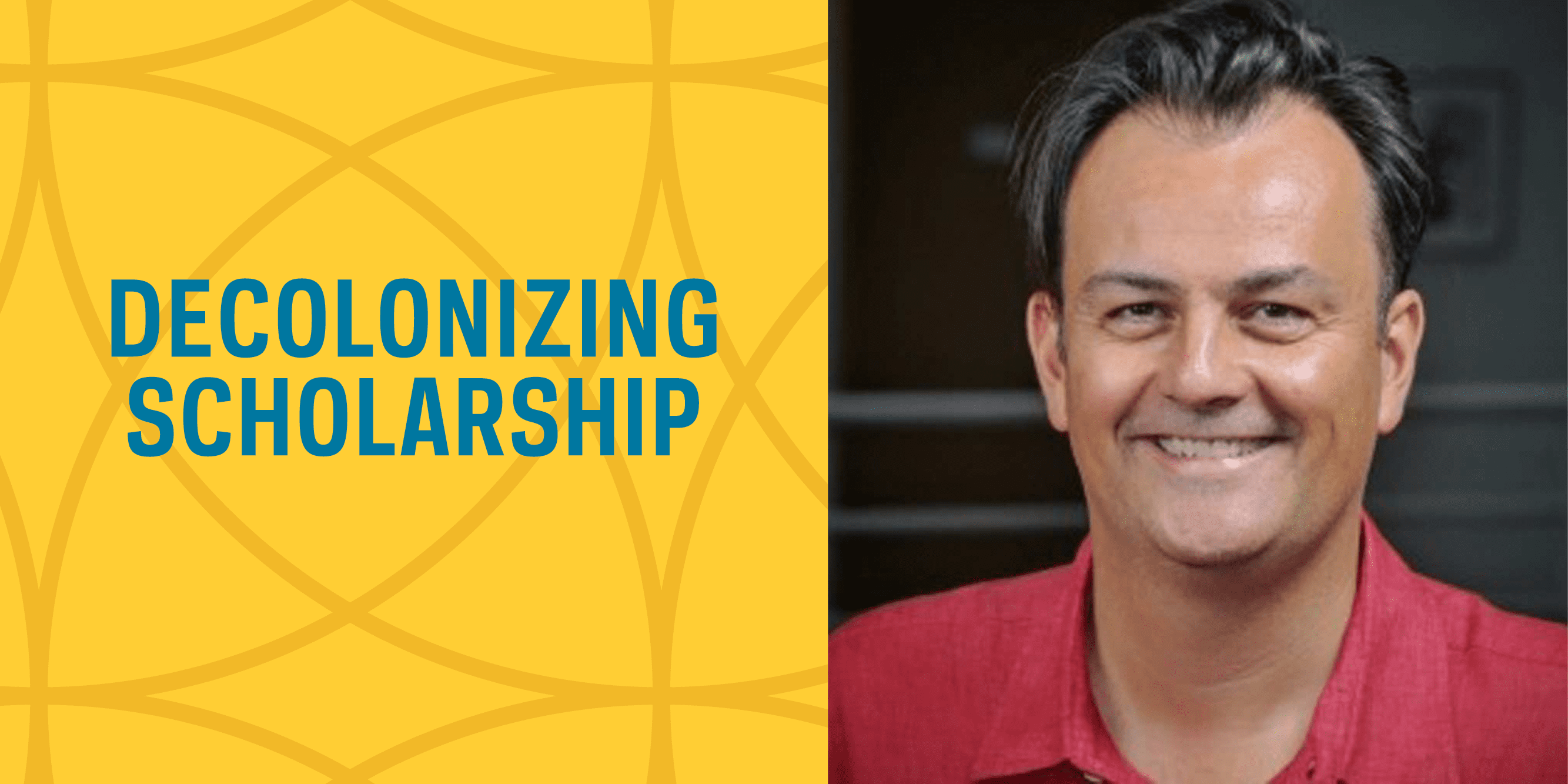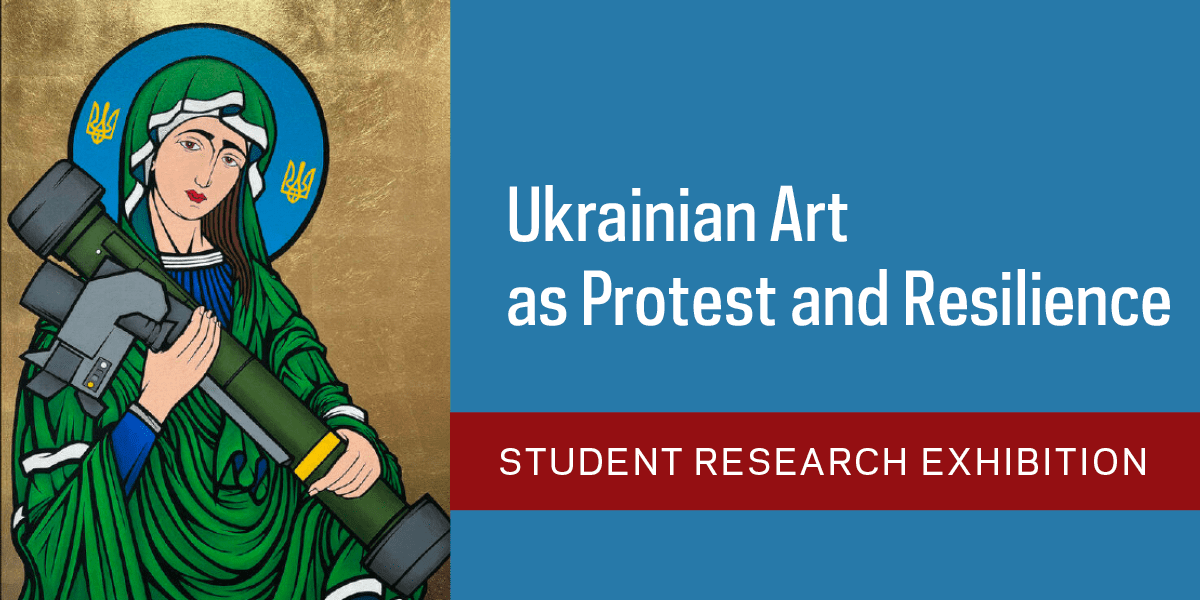The Annual Breandán Ó Buachalla Memorial Lecture: Clíona Ní Ríordáin on “Contemporary Irish Writing: The Ecolinguistic Turn”

Professor Ní Ríordáin looked at the way in which the Irish language has been central to a number of recent books within contemporary English language literature in Ireland. Some examples she discussed are Thirty-Two Words for Field by Manchán Magan, Thin Places by Kerry ní Dochartaigh, and The Colony by Audrey Magee. She will trace the trend back to earlier texts, like The Last Geraldine Officer by Thomas McCarthy, and to one of Seamus Heaney’s early poems, ‘For the Commander of the Eliza.’
For more information visit the event website.
Three Questions with . . . Clíona Ní Ríordáin
Clíona Ní Ríordáin is Professor of English at the University Sorbonne Nouvelle-Paris 3, where she teaches Irish literature and translation studies and convenes the Master’s programme in Irish Studies. This past year, she was co-convenor of the Institute’s Global Ulysses program, which, in the centenary year of James Joyce’s Ulysses, featured conferences in Rome (March), Paris (early June), and Dublin (mid-June).
Professor Ní Ríordáin took particular charge of the Paris conference. Held in partnership with the Centre Culturel Irlandais, it attracted scholars from France, Ireland, Italy, and the US, and students from Notre Dame and the University of Texas. The conference was extraordinarily inventive in scope. It began with the journalist Lara Marlowe discussing the “Aeolus” episode and continued on with such talks as Declan Kiberd’s “Dublin on the Seine,” a panel of Joyce scholars on “Ulysses in France,” Alison Rice on her book Worldwide Women Writers in Paris, and Marina Carr giving her response to the “Penelope” episode. Professor Ní Ríordáin gave a memorable talk herself on how Ulysses has been packaged and promoted for audiences of all ages and literary tastes.
Professor Ní Ríordáin visited the Keough-Naughton Institute for two weeks in August 2022. During her visit, she delivered the 2022 Breandán Ó Buachalla Memorial Lecture, with the topic “Contemporary Irish Writing: The Ecolinguistic Turn.” While she also spent time visiting with faculty and students in Irish Studies, English, and Romance Languages, she devoted herself to delving into the Hesburgh Library’s Irish Studies collection to research her current book topic: the influence of French literature on contemporary Irish writing (see below).
Raised in an Irish-speaking community on the edge of Cork city, she recalls that “Breandán Ó Buachalla was a friend of my mother’s. They were in Conradh na Gaeilge together as teenagers in Cork and later both attended University College Cork.”
This was Professor Ní Ríordáin’s second visit to the Institute. Her first was in the fall of 2018. She delivered a talk then on the poet Ciaran Carson and guest-lectured at classes, but it was the time away from her own academic and administrative duties that allowed her the time to finalize research for her book English Language Poets in University College Cork, 1970-1980.
[Read more about the book.]
In addition to teaching literature and translation studies, since 2004, Professor Ní Ríordáin has been a correspondent in Paris for Raidio na Gaeltachta (Gaelophone National Radio of Ireland) and is a frequent book reviewer for The Irish Times, The Times Literary Supplement, and The Dublin Review of Books.
From Paris, Professor Ní Ríordáin answered our three questions:
What are you reading?
After the 79 books I read in English this past winter and spring as a member of the selection committee for the Dublin Literary Award [Alice Zeniter’s The Art of Losing (Picador, Pan MacMillan), as translated by Frank Wynne, was the winner], I went back to reading in French, among my favourites were La plus secrète mémoire des hommes by Mohamed Mbougar Sarr (winner of this year’s Goncourt Prize and Philippe Forest’s Le siècle des nuages. I have just come back from a literary festival on the island of Ushant, off the coast of Brittany, for which I reread books by Claire Keegan, whom I interviewed. Tadhg MacDhonnagáin, the author of Madame Lazare was the guest of honour at the festival. We spoke together about the inspiration for his novel, one of the laureates of the European Union Prize for literature. Neil Hegarty and Niamh Boyce were also guests at the festival. I really enjoyed discovering their work. At present, I’m reading Yeats’s letters and Autobiographies, because I am working on the translation of a new novel by Maylis Besserie, Les Amours dispersées, which takes as its starting point the burial of Yeats in Roquebrune Cap Martin on the eve of the Second World War.
What are you working on?
At Notre Dame, I will be researching my book on the influence of French literature on contemporary Irish writing. Originally, I planned to examine Ciaran Carson alone, but I have decided to widen my focus to include other Irish writers like Derek Mahon, John Montague, and Eiléan Ní Chuilleanáin.
I also plan to look at the poetry I hope to include in a new film L’Irlande des poètes’ made by a French documentary-maker, Jean-Pierre Duval. I am collaborating with him on the script. Jean-Pierre is going to cycle around the Atlantic seaboard on a bicycle, and he will ask people to recite poems that tell the story of Ireland.
What are you most looking forward to this coming academic year?
The answer to this question is certainly the John Montague Memorial Conference, which will take place from 8-10 June 2023 at the Centre Culturel Irlandais and for which I am a co-organizer.
Montague is featured prominently in my book on the English language poets of University College Cork. The poets who came to Cork in the 1970s came to study with him and Seán Lucey, both excellent mentors. As described in the book, those young scholars came with purpose—to immerse themselves in a heady atmosphere of words and the knowledge of the profound effect of those words on our identities and sense of selves.
At the conference, we will look back at Montague’s life and examine his contributions to poetry, music, and the arts in general. Participants will also look at questions of legacy and evoke his relationship with France. We will also launch a book of essays on the poets and poetry of Munster (Ibidem), to which Declan Kiberd has agreed to contribute a foreword.
August 26, 2022
More Like This
Related PostsLet your curiosity roam! If you enjoyed the insights here, we think you might enjoy discovering the following publications.

